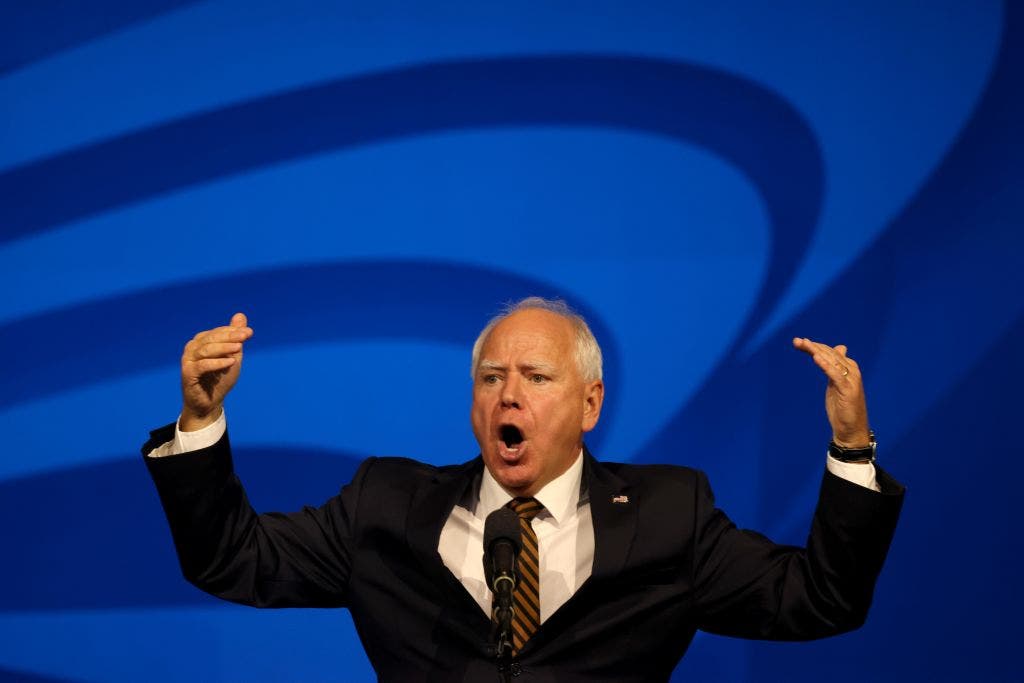Tim Walz Passionately Calls for Democratic Unity Amid Political Tensions
In a stirring address to Democrats gathered at the party’s summer strategy meetings in Minneapolis, former Minnesota Governor and vice presidential candidate Tim Walz delivered an impassioned call for unity while expressing deep concerns about the current political landscape. Speaking candidly to a party wrestling with internal divisions following the 2024 election loss, Walz didn’t mince words about what he sees as the stakes for American democracy. His speech highlighted the tension between maintaining a space for healthy internal debate within the Democratic Party while also presenting a unified front against what he characterized as dangerous policies from the Trump administration.
Walz began by reflecting on the recent election, expressing his belief that Kamala Harris “was the most qualified and would have been a fantastic president,” contrasting what he described as her potential for compassionate, dignified leadership with what he colorfully termed the current “man child” behavior in the White House. He emphasized that Democrats shouldn’t retreat from their core values, stating firmly, “We’re not shying away from diversity as a strength and equity as a goal and inclusion being the air we breathe. That’s what we should be doing.” This recommitment to progressive principles came at a time when some within the party have questioned whether certain positions on social issues contributed to electoral losses in 2024.
The former governor expressed particular frustration with media coverage that he believes disproportionately focuses on Democratic Party divisions while overlooking more serious concerns about the current administration’s actions. “It boggles my mind,” Walz remarked, “that in the midst of a military takeover of our cities and the attempt to go into others, their flaunting of the rule of law, the cruelness and the unconstitutional nature of the way they’re attacking our neighbors, that the press finds the need to talk about, ‘Oh, there’s a division in the Democratic Party.'” Drawing a relatable analogy, he added, “There’s a division in my house and we’re still married, and things are good. That’s life!” His point resonated with attendees—healthy debate within families and political parties is natural, but should not overshadow what he perceives as more pressing national concerns.
Walz contrasted what he described as the accountability within Democratic ranks to what he characterized as the simpler path of Republican conformity. In colorful language that drew both laughter and applause, he painted a picture of what he sees as the straightforward nature of following the current Republican leadership: “Think of how easy it would be to be a Republican. Oh, what should I wear today? This stupid fricking red hat? What should I say today? I don’t know, just make sure it’s cruel.” This stark portrayal highlighted his perception of fundamental differences between the parties’ approaches to governance and accountability. He didn’t shy away from using provocative terminology, stating, “I always get in trouble for it, I’ll continue to say it, I don’t think we do any favors when we don’t name it, these are fascist policies… That is what they are.” This characterization reflects the increasingly sharp rhetoric being deployed by figures on both sides of the political divide.
Addressing specific policy matters, Walz criticized President Trump’s executive order cracking down on flag burning, suggesting it was motivated by personal concerns rather than patriotism: “Now he’s talking about burning flags… because he knows there’s a hell of a lot of flags with his picture on it that are going to get burned.” This comment reflected the broader Democratic criticism that the administration’s priorities are misaligned with what they consider to be the country’s most pressing needs. The speech represented the kind of direct, unfiltered messaging that some Democrats have been calling for as the party regroups following electoral disappointments and considers how to effectively oppose policies they disagree with while also articulating an alternative vision.
As he concluded his remarks, Walz urged Democrats to focus on “running to a better future,” painting a picture of an inclusive America that aligns with traditional Democratic values: “A future that includes everyone, a future where our children are valued and lifted up, a future where immigrants are celebrated just like our grandparents and parents were, a future where we ask people to pay their fair share while we make life a little bit easier for others.” This vision statement aimed to refocus the party on its core aspirational message rather than merely opposing the current administration. The fiery speech, which received enthusiastic responses from the gathered Democrats, encapsulated the current moment for the party—one marked by deep concern about the direction of the country, internal debates about strategy and messaging, but also a recommitment to the values that unite them as they look toward rebuilding their political strength.


